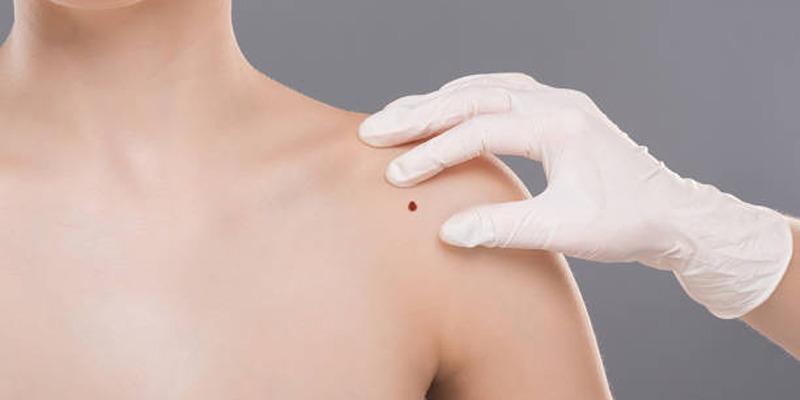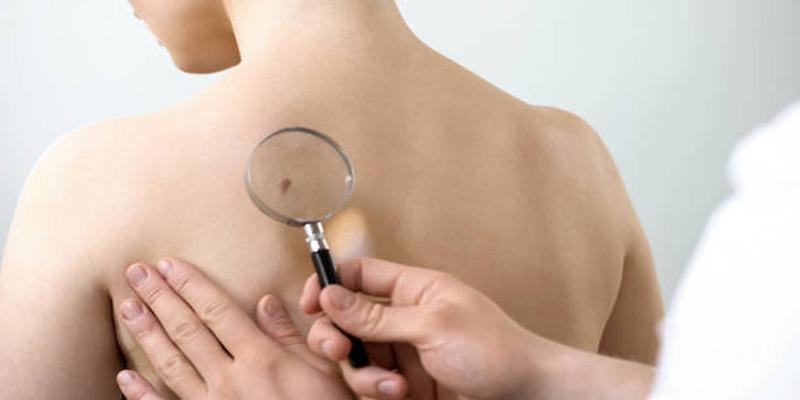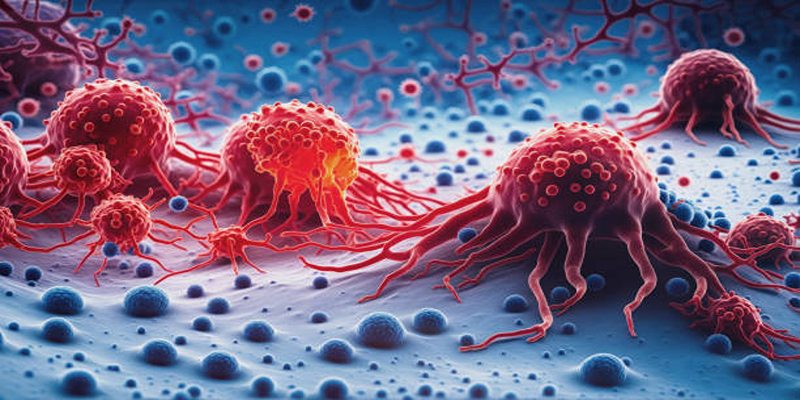Early Detection of Merkel Cell Cancer: Key to Better Outcomes
Merkel Cell Cancer the MCC are a very rare but dangerous type of skin cancer. If not treated at early stages, it can be very hazardous. A patient can get a better outlook on his condition with early diagnosis and better medical intervention. This article discusses the ideas pertaining to early detection, how it can benefit the health conscious person and defines early detection and how it can be prevented and monitored by presenting practical steps for the reader to consider.
What is Merkel Cell Cancer?

Merkel Cell Cancer (MCC), also known as neuroendocrine carcinoma of the skin is an emergent and rare skin cancer that affects skin Merkel cells, situated in the skin epidermis. Help in detecting the sense of touch sensation, it may turn cancerous under some circumstances result in MCC. MCC is highly aggressive and can spread quickly to the lymph nodes, liver, lungs, or brain. It is most common in adults over 65, particularly those with lighter skin tones, extensive sun exposure, or weakened immune systems, such as organ transplant recipients or individuals with HIV/AIDS.
The exact causes of MCC remain unclear, but contributing factors include prolonged UV radiation exposure, weakened immunity, and the Merkel cell polyomavirus (MCV). This virus is present in many MCC cases, though its role in the disease is still being studied.
Signs and Symptoms
Merkel cell carcinoma (MCC) is rare but aggressive, requiring prompt attention for effective management.
Early Warning Signs
The initial symptoms of MCC often appear as a painless, firm, and fast-growing nodule on sun-exposed areas like the face, neck, or arms. These nodules are typically skin-colored, red, or purple, and they may resemble other benign conditions, making early diagnosis challenging. Identifying these signs early can significantly improve outcomes, as delayed treatment may allow the cancer to spread to other parts of the body.
Advanced Symptoms
As MCC progresses, additional symptoms may emerge, often indicating the spread of cancer to other organs. These can include swollen lymph nodes, loss of sensation in the affected area, ulcers or sores on the skin, and difficulty breathing or swallowing.
Methods of Early Detection
Early detection of MCC relies on a combination of self-awareness, routine medical checkups, and advanced diagnostic tools.
1.Role of Routine Medical Checkups
Routine checkups with a dermatologist are one of the most effective ways to catch MCC early. These professionals are trained to identify suspicious skin lesions and can offer a thorough skin examination, particularly for individuals at higher risk of developing MCC. The earlier an abnormality is spotted, the more options are available for treatment.
2.Biopsy and Diagnostic Tools
If a lesion appears suspicious, a biopsy is typically performed to confirm whether it is MCC. A biopsy involves removing a small sample of tissue from the affected area, which is then examined under a microscope to identify cancerous cells. Additional diagnostic imaging, such as PET scans, CT scans, or MRI, may be recommended to determine whether the cancer has spread to other parts of the body.
Merkel cell polyomavirus (MCV) testing and sentinel lymph node biopsy are other specialized diagnostic options. The sentinel node biopsy helps identify whether cancer has spread to the lymphatic system, guiding treatment decisions.
Benefits of Early Detection
Early detection of MCC significantly improves treatment outcomes and patient prognosis. Through timely intervention, the likelihood of successful management increases.
Improved Survival Rates
Early-stage Merkel Cell Carcinoma (MCC) offers significantly higher survival rates compared to advanced stages. When detected early, treatments can effectively target localized cancer before it spreads to other parts of the body, greatly improving outcomes. Early intervention ensures that patients have a better chance of recovery and long-term survival.
Broader Treatment Options
Detecting MCC in its early stages opens the door to a broader range of treatment options. These can include surgical excision to remove the cancerous cells, radiation therapy, and even less invasive therapies that may ensure minimal disruption to the patient’s daily life. Early detection means doctors can tailor a treatment plan more suited to the individual's needs, increasing the likelihood of success.
Reduced Complications
Timely diagnosis of MCC is critical in minimizing the risk of the cancer spreading to lymph nodes or other organs. Detecting the disease early reduces the likelihood of requiring complex, aggressive treatments like extensive surgeries or multiple rounds of chemotherapy. This not only improves the patient’s quality of life but also reduces the chance of long-term health complications related to advanced cancer progression.
When to Seek Medical Advice
Knowing when to consult a healthcare professional is critical for early diagnosis. Individuals should seek medical advice if they notice a new lump, unusual skin changes, or lesions that grow rapidly, change color, or fail to heal. Similarly, swelling in lymph nodes without an obvious cause is a sign that warrants further investigation. Those with a history of excessive sun exposure, weakened immunity, or prior skin cancers should be particularly attentive and proactive in monitoring their skin.
Preventive Measures

While it is impossible to eliminate all risk factors, adopting healthy lifestyle habits and taking protective measures can greatly reduce the likelihood of MCC.
Protecting Skin from UV Exposure
UV radiation from the sun and artificial sources, such as tanning beds, is a major risk factor for MCC. To protect the skin, individuals should apply broad-spectrum sunscreen with an SPF of at least 30 daily, even during overcast weather. Wearing protective clothing, wide-brimmed hats, and sunglasses can also shield sensitive areas from harmful radiation. Avoiding peak sun hours (10 a.m. to 4 p.m.) and seeking shade whenever possible are additional strategies to minimize UV exposure.
Monitoring High-Risk Individuals
For individuals at higher risk—such as those with suppressed immune systems or fair skin, regular skin checks are essential. Dermatologists can provide personalized advice and recommend screening intervals based on an individual’s specific risk profile. Furthermore, learning to recognize the ABCDEs of skin cancer (asymmetry, border irregularity, color variation, diameter greater than 6mm, and evolving appearance) can help individuals identify warning signs early.
Conclusion
Early detection and proactive prevention are key in reducing the risks associated with Merkel cell carcinoma and other skin cancers. By adopting protective measures against harmful UV exposure and staying vigilant through regular skin checks, individuals can significantly improve their outcomes. Awareness of personal risk factors and recognizing early warning signs empower individuals to take timely action. Coupled with guidance from healthcare professionals, these steps form a solid foundation for skin cancer prevention and management.











